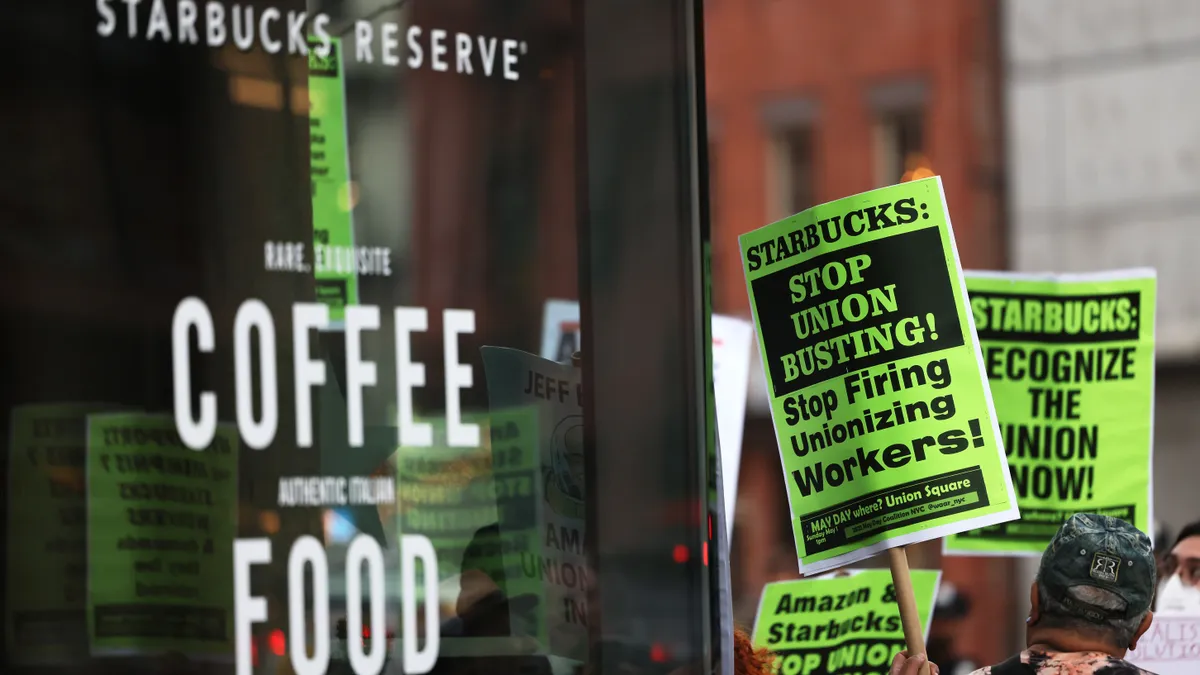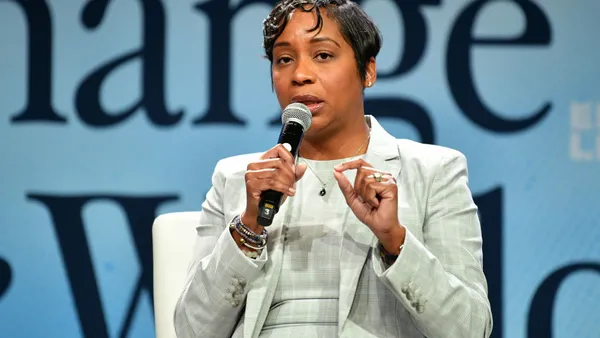Dive Brief:
- Starbucks Corporation’s leveraging of its civility rule — as outlined in the coffee company’s workplace handbook — violated labor law, the National Labor Relations Board held in a ruling published Aug. 9.
- The ruling outlined Starbucks workers’ complaints of anti-union activity. From February to May 2022, Starbucks allegedly threatened workers at six stores with loss of benefits and the ability to transfer or fill in for other workers. Leadership also “coerced employees into attending captive audience meetings” and began cracking down on dress code policies.
- NLRB said Starbucks upheld a broad civility rule called "How We Communicate," and discharged a couple of employees in retaliation for Workers United activities, along with other protected concerted activities.
Dive Insight:
The NLRB recently shifted the tide regarding workplace civility rules. In Stericycle, an NLRB board member underscored how civility rules have “threatened to chill” worker expression. The main takeaway was that some workplace policies are vague enough to be read as prohibiting activity protected by the National Labor Relations Act.
Stericycle, which came Aug. 2, reversed the NLRB’s 2017 ruling in Boeing, which relaxed scrutiny of employer handbooks.
Among other recommendations, a remedy notably put forth by the NLRB for Starbucks was to take back the “overbroad” workplace policy, “How We Communicate” — and to notify Starbucks employees that it had been recalled.
Starbucks has generally appealed unfavorable rulings from NLRB judges, and from the board itself. Though the company has recently settled two NLRB cases, one in Seattle in June and a second in Pittsburgh in July, which could signal a shift in the coffee giant’s overall strategy. A Starbucks spokesperson said the company intends to appeal the board decision to federal court.
Since the union’s first elections in Buffalo, New York, in the fall of 2021, Starbucks Workers United members have accused Starbucks of weaponizing its employee handbook against workers, including for violations of its dress code and communications policy. Some union workers have said they were disciplined for swearing out of customer earshot.















